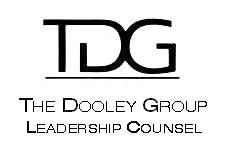LLFSM OUTCOMES For Sponsors and Participants
“Behavior is the only evidence of change.”
Since 1985, participants have said something like the following fifty statements, when describing what wasthe impact on them of the LLF. You may choose these, reword them, or make up your own objectives for your LLF. It is not an optional activity of LLF. Outcomes must be chosen, should be communicated, may be changed. This list is suggestive. Usually the impact of a LLF is noticed first by children, then spouses, then coworkers/team members at the third or fourth meeting depending on the group or the organization. Secondly, and more broadly these changes or growth are identified and described by subordinates and clients. Then, often by bosses. Examples or quotes are related frequently by participants in the reconnect/disconnect in the fifth to ninth meetings and always, deeply, at Commencement.
For many, such sharing is done several times.
| Most Frequently Mentioned Areas of Impact/Benefit by Participants and Sponsors |
| 1. I know my organization better, have a deeper and broader understanding. |
| 2. I give back to my organization. |
| 3. I have a better attitude for producing results. |
| 4. My mentoring activity is (doing/receiving) increased. |
| 5. I’m managing more comfortably, more effectively. |
| 6. I’m leading more comfortably, more effectively. |
| 7. I have a deeper appreciation of diversity (full) – for individuals and for groups. |
| 8. My Listening is improved (apparent for individuals and the group). |
| 9. I am more tolerant of co-workers/management. |
| 10. I have an increased flow of creativity. |
| 11. I have revitalized reading skills, beyond “technical,” I read books that I never would have read. |
| 12. I have begun/improved time management functionally and personally. |
| 13. I understand my responsibilities and their consequences, better. |
| 14. Sharing has increased within our group (teamwork/communications/trust). – (Specific references to books/speakers/exercises are made outside of the sessions.) |
| 15. There are clearly personal areas of improvement for me. |
| 16. I work with others in LLF much more effectively (teamwork in many ways). |
| 17. It’s like a graduate course in leading, discipline, and commitment but more practical and more meaningful. |
| 18. This was a needed “sabbatical,” or change from my normal work process which allows #9, #10, #45, and appreciation of the “half glass full.” |
| 19. I do much more enterprise wide thinking. |
| 20. I do more marketplace thinking, and wonder about its nature. |
| 21. I have more awareness of what I don’t know. |
| 22. I’m less defensive. |
| 23. I do much less whining and so does the group (maturity). |
| 24. I’m more effective at giving and getting feedback. |
| 25. We have developed better “bench” strength for the host organization leadership. |
| 26. I have a deep appreciation of my organization’s choice to sponsor a LLF. |
| 27. I now grasp business issues that I never would have thought of, or didn’t fully understand. |
| 28. I was able to get to know speakers that I never would have heard, or listened to, and now can contact them for help/information/counsel. |
| 29. I am more connected to my core inner strengths. |
| 30. I have taken full responsibility for my own self development. |
| 31. I have greater acceptance of uncertainty in business, and in management. |
| 32. I am more optimistic, hopeful re. my organization, the market, the world and my role in all. |
| 33. I am able to “Rise Above It” – done more often. |
| 34. I “Just Do It” – more often. |
| 35. I know myself much better – (this must occur before I lead/judge others). |
| 36. I’m making and meeting my commitments, – personally and professionally. |
| 37. The quality of my personal responsiveness in decision making has increased. |
| 38. I do more “second order” knowledge transfer with others. |
| 39. I have decided to stay at (host organization) (hiring costs). |
| 40. I have a greater awareness of global issues and the local implications of global actions. |
| 41. I have more confidence and use it in my personal and professional life. |
| 42. I’m a better planner. |
| 43. I’m more comfortable with ambiguity. |
| 44. I have greater understanding and acceptance of the lack of perfection in executive management. |
| 45. I can generate a process of “reflection” when needed. |
| 46. My attitude, more often, can be “half glass full” and “half glass empty,” on call. |
| 47. I understand there is a cost/price/trade off involved in choosing to be a manger/leader. |
| 48. Consequences from my choices are clearer to me and I am more accepting of them. |
| 49. I have seen other organizations with strengths we can imitate. |
| 50. Balance is more a part of the way I approach my responsibilities |



